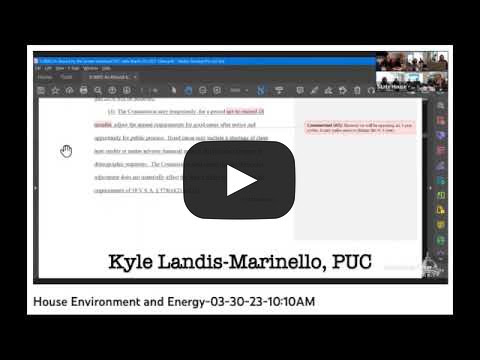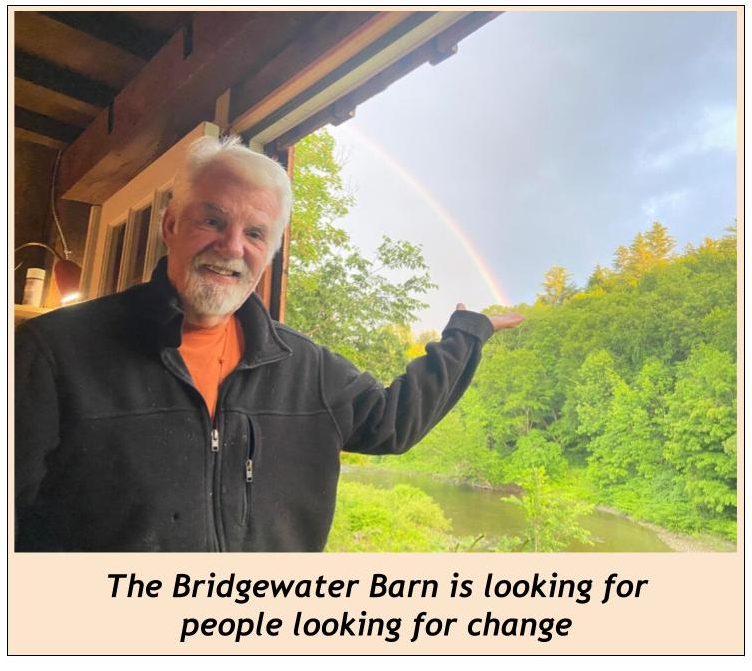House committee clarifies it’s a (very limited) “throttle down.”
It looked like the Clean Heat Standard bill, S.5, was going down to potential veto defeat in the Senate after massive public backlash over the estimated cost the program would have on home heating fuels. Then the Senate Appropriations Committee amended the bill with what they called a “check back” clause, by which – so they claimed – all the research would be done into what the bill would actually cost to implement and the rules governing the credit system would be fully formed and evaluated before the General Assembly would then have to vote on whether or not to move forward.
Senator Chris Bray (D-Addison), chair of the Energy & Natural Resources Committee, assured everyone that this meant we would be making a “full stop” before adopting a Clean Heat Standard. Some claimed that the provision turned S.5 into just another study bill, which is often a face-saving way to kill an idea. Anyway, the amendment assured that votes from key senators were secured, and the public breathed a sigh of relief.
But, as Behind the Lines warned at the time, do not believe all this. Re-inhale that sigh!
First point you need to know: Passage of S.5 ensures Vermont will adopt a Clean Heat Standard and its home heat “carbon credit” scheme. The “check back” does not in any way reconsider this point. It only ensures that the full legislature has to review and vote on the rules package the Public Utilities Commission (PUC) comes up with to oversee the program, as opposed to those rules being reviewed and passed by the eight member ( four senators and four representatives) Legislative Committee on Administrative Rules.
But now that the Clean Heat Standard bill is in the House, we are getting some clarity as to just how hollow even that level of “check back” really is. For one thing, it isn’t really a “check back” or a “circuit breaker” at all, it is a – new term — “throttle down.” Definitely not a “full stop,” and it can’t even be called a pause. And, most important, the “throttle” has a serious regulator on it, much like the bus in the movie Speed.
Kyle Landis-Marinello and Thomas Knauer, General Counsel and Policy Director respectively for the PUC testified before the House Energy & Environment Committee on March 30 to weigh in on S.5 as it passed the senate.
In discussing the “check back” Landis-Marinello explained, “There are a lot of unknowns about what the ultimate cost is going to be of the Clean Heat Standard, so when we dive into this, if we’re given this to implement, we may find there is good cause to pause the implementation until there is a larger work force or for different reasons.”
Knauer corrected his colleague’s use of the term “pause,” instead preferring to say, “throttle down.” Knauer went on, “We want to achieve the full amount of emissions reductions, but a potential study or market factors might indicate it’s not technically feasible. The workforce isn’t there, there might be other factors that indicate getting 100% of our goals over the next three years just isn’t there. So, we say ‘throttle down’ to some fraction – 90%, 80%, something like that.”
Okay, so that is not the “full stop” Senator Bray and company promised. But at least there is some responsibility built in for the legislature to re-evaluate whether or not to go forward with a Clean Heat Standard given the facts on the ground, right? Nope. Not really. In fact, kind of the opposite.
Rep. Seth Bongartz (D-Manchester) astutely pointed to the sentence in the bill that states, “The Commission shall ensure that any downward adjustment does not materially affect the State’s ability to comply with the requirements of [The Global Warming Solutions Act].”
“What if you had to throttle back to 50% or whatever. That actually would materially affect [our ability to meet the mandates in the GWSA], so is there a conflict?” asked Bongartz.
“Yeah, there could be,” agreed Landis-Marinello, at least regarding the 2030 and 2050 target mandates in the GWSA. “If we have a pause – not a pause, a ‘throttling back’ – in the early stages, how much we throttle back will be dependent upon whether it can be done and still meet the 2030 [mandate].”
Bongartz continued to wrestle with this obvious Catch-22. “And yet if it’s not feasible—I mean is it possible you can have a conflict where you determine for whatever reason it is not technically feasible and yet, if you do [throttle back to an extent] because it’s not technically feasible it would materially affect – is there a conflict in that?” Yes, and this is a feature, not a bug.
Landis-Marinello later confirmed, “As this is written, it is clear that any ratcheting down that we make cannot materially affect our ability to meet those Global Warming Solutions Act requirements.”
So, to use the train-leaving-the-station metaphor that has been used with this issue before, the way this so-called safety measure works in practice is the S.5 train leaves station A at full speed upon passage this year (2023) in order to get to Station B on time in 2030. In two years (2025), we come to the section of tracks where the lights blink and bells ring to say potential danger ahead, consider “throttling down.”
But – and here is the big catch our lawmakers hope the public misses – the lights and bells are largely decorative. Even if there’s a bridge out and the train will crash killing all aboard, the conductor can’t legally slow down if it means you might be late to station B. And there is no feasible scenario where those two things can both happen. So the train blows through the barrier.
Now, as Landis-Marinello pointed out, the legislature can at any time pass a law saying “The PUC shall not implement the Clean Heat Standard.” True. Just as true, the legislature can pass a law at any time repealing the Global Warming Solutions Act. But they never mention this option, do they?
No, the Democrats and Progressives who passed the Global Warming Solutions Act did so in a manner calculated to avoid, at least rhetorically, their own accountability for whatever happens after. Rest assured, they are crafting S.5 in the same devious fashion.
Today they are saying, we have to pass the Clean Heat Standard because it’s the law under the Global Warming Solutions Act. Don’t blame us, our hands are tied! In 2025 they will say, we have to approve the rules put forward by the PUC because to change them or to not approve them would “materially affect the State’s ability to comply with the requirements of [The Global Warming Solutions Act].” Our hands are tied!
If voters do, in fact, want a true check back before a Clean Heat Standard becomes law, then we must demand that the legislature really make this a two year study of the concept. Then in 2025, revisit the Clean Heat Standard in total, not just the rules. That would be an honest policy. The safest policy would, of course, be to just vote the thing down tomorrow.
Categories: Commentary










So what are you saying Rob, if we want a chance at living the kind of life our ancestors bequeathed to us we had better grow a pair and disavow all things socialist and flat ?
Vermont’s leftist legislature really can stop pretending now. As a super-majority focused on establishing totalitarian rule- down to what form of energy you are permitted to purchase and use- and what it’s cost will be- Pretending just isn’t required any longer. mr. bray and his committee of leftists will upon passage of S.5 succeeded in making the PUC a “super commission”- a carefully crafted board of nomenklatura, responsible for determining method and cost for ALL energy sources for non-transportation uses in the State of Vermont. Every kilowatt hour, btu of propane and natural gas and every ounce of oil now falls under their purview for social acceptability, availability and cost to consumer- Every bit of it.
Talk about a camel’s nose under the tent, the alleged majority of Vermonts voters have made this possible- and due to the pretending- actually seem to embrace what is coming.
We have ceded out independence and freedoms to platitudes and theory, with the culmination being Vermont’s socialist’s and climate evangelists leading the way down an intentionally dark path.
That’s not just the “camel’s nose” under the tent Frank. I can tell by all the camel crap on the floor inside of the tent.
The camel has already messed everywhere-up and down State St. in Montpelier. I would think Mr. Roper or Mr. Thurston could clarify my theory that upon passage, the Public Utilities Commission (Appointed, not elected) will control means, method and price for all energy, outside of transportation uses. And that is a troubling trip into state sponsored totalitarianism.
I would add that Margaret Cheney is one of 3 current board commissioners.
For those that don’t know Ms. Cheney, they’ll know her husband- now US Sen. Peter Welch.
This is all so disheartening. The Clean Heat Standard and the Global warming Solutions Act will do nothing to reverse supposed climate change. They should both be repealed! If China and India and the rest of the world continue to use fossil fuels, our minuscule efforts will do nothing but serve only to burden our people. It will make use weaker and poorer. I have always loved VT (and the USA), but fear it is being destroyed.
Enough is enough. All of this will be null and void IF we simply succeed from the US empire. It’s our right to do so as it is with the republic of Texas. We can be the Switzerland 🇨🇭of North America 🇺🇸 🇨🇦 and be an honorable people once again. The Second Vermont Republic is in its 3rd trimester ready to pop. The time is right for the 2VR.